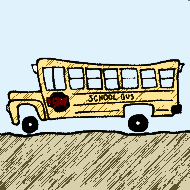
Services for Schools and Institutes:
Schools hold the promise of tomorrow be it the teachers or the students themselves. For a better tomorrow we need better developed teachers and children. Teachers often have to deal with several children all at once and with different needs, this is no mean feat, hence it is essential that teachers be more than their degrees and like any other profession (or maybe even more so) they need to be passionate about what they do.
We help teachers to tap into their creativity thus channeling it to their students and making a happy and nurturing school experience for the child and the potential they harbor.

Training:
Schools/ Colleges/ Universities: Teachers- Experiential Learning
“Tell me, and I will forget. Show me, and I may remember. Involve me, and I will understand.”
—Confucius, circa 450 BC.
This is the premise that Experiential Learning is based on, and is defined by the Association for Experiential Education as “a philosophy and methodology in which educators purposefully engage with learners in direct experience and focused reflection in order to increase knowledge, develop skills, and clarify values.”
Experiential learning is a teaching methodology where focus is placed on the process of learning and not the product of learning. Experiential learning is learner and activity centered and creates an environment where learners can reflect and apply their experience to real world situations.
However participating in an experience is not enough, and in order for an activity to truly be called experiential, it needs to encompass the following elements:
| Exploration | Sharing | Processing |
| Generalization | Application |
With this view the training which is based on the Experiential Learning Project by the University of California will have the following objectives:
To help instructors/teachers improve their skills and confidence in understanding the Experiential Learning Cycle
To help instructors/teachers to incorporate the Experiential Learning Cycle into their educational programs.
To help instructors/teachers distinguish between hands-on educational experience that does not involve inquiry and hands-on educational experience that is inquiry based.
To apply the concepts of Experiential Learning and Inquiry to existing programs and activities.
Experiential learning is a wonderful teaching method for engaging learners and getting them to think creatively. It requires letting go of "perfect" end products and embracing the experience of learning. It changes the role of the teacher to being a facilitator as opposed to the holder of information.
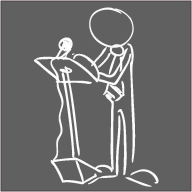
Workshops for Teachers:
Several psychological studies have repeatedly shown that the teacher has a direct impact on not only the academic performance of the child but on his/her overall development.
Hence, it is of utmost importance that our teachers be taught basic life skills that can help in their continued personal development be it emotional, cognitive, behavioral or physical and this in turn will benefit the child. Dance/Movement therapy assists in this overall development.
Keeping key objectives in mind, the workshop can be aimed at:
Making the teachers aware of themselves and their own shortcomings and gradually guiding them through the process of self-realization and learning.
Helping them learn the principles of experiential learning.
Teaching the teachers empathy in a teacher-student relationship.
Emphasizing the importance of life long learning.
Stress and Anger Management.
Personal Development.
Classroom Management.
Special needs identification and senstization.

Training for Students:
Expressive Arts have a unique power to engage children and motivate them towards excellence. Dance/Movement, Music, Drama, Literature, Poetry and the Visual Arts can be used as a form of experiential learning which uses the arts as a tool to enrich the cognitive, affective and behavioral aspects of an individual and thus promotes holistic development.
It begins with experience through reflection and conceptualizing to action and on to further experience. These therapy techniques enhance fitness and help release stress. It will assist the children to shed their inhibitions and thus gain confidence all this while exploring self-expression and building social skills.
Some key objectives could include:
EQ development through Creative Expressive Arts
Motivation
Peer-education and pressure
Sensitization to different sexualities and changes through adolescence
Managing exam stress and pressure
Coping with bullying and peer pressure
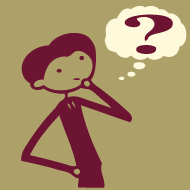
Career Counseling:
Choosing the right career often is the defining factor between those who are more successful than others. However, choosing that right career is a daunting task. It isn’t always easy to sift through the multitude of options to arrive at the “perfect fit”. Career counseling makes this a little easier.
Career counseling is the one-on-one or group professional assistance in exploration and decision making tasks related to choosing a major/occupation, transitions into the world of work or further professional training.
The field is vast & includes Career Placement, Career Planning, Learning Strategies, and Student Development. Finding your first job carefully is an essential step in starting your career and we help you with just that.
The counseling process is 3 pronged:
- An interview with the student
- Psychometric assessments:
- Aptitude assessments
- Personality assessments
- Interest inventories
- Counseling and review of the assessment report
The primary purpose of career counseling is to help you learn how to explore and investigate potential majors and occupations. Interest inventories and career tests will not tell you what you should do.
They will, however, help you organize your thoughts and ideas about majors, careers and occupations. And our counselor will review the results with you and show you how to explore and investigate those majors/occupations that interest you.
At the end of the counseling process the student will be provided with a report detailing the assessment and the outcomes.
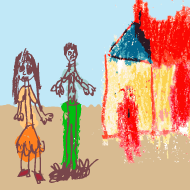
For Parents:
It is essential that parents are involved in the education process so that the onus of the child is not exclusively on the school. To help this, parent workshops and question and answer sessions are conducted to help bridge the gap.
Possible workshops are:
- Parenting Workshops on acceptance, communication and tolerance that helps foster a nurturing environment.
- Workshops on bridging the gap between home and school so as to make the transition easier on the child.
- Workshops on communicating with teens and teen management.
If a school has particular requirements custom made programs are designed as well.
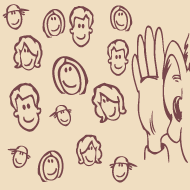
Counseling:
Counseling can be provided to teachers, parents and students by a trained counselor on a retainer ship basis.

